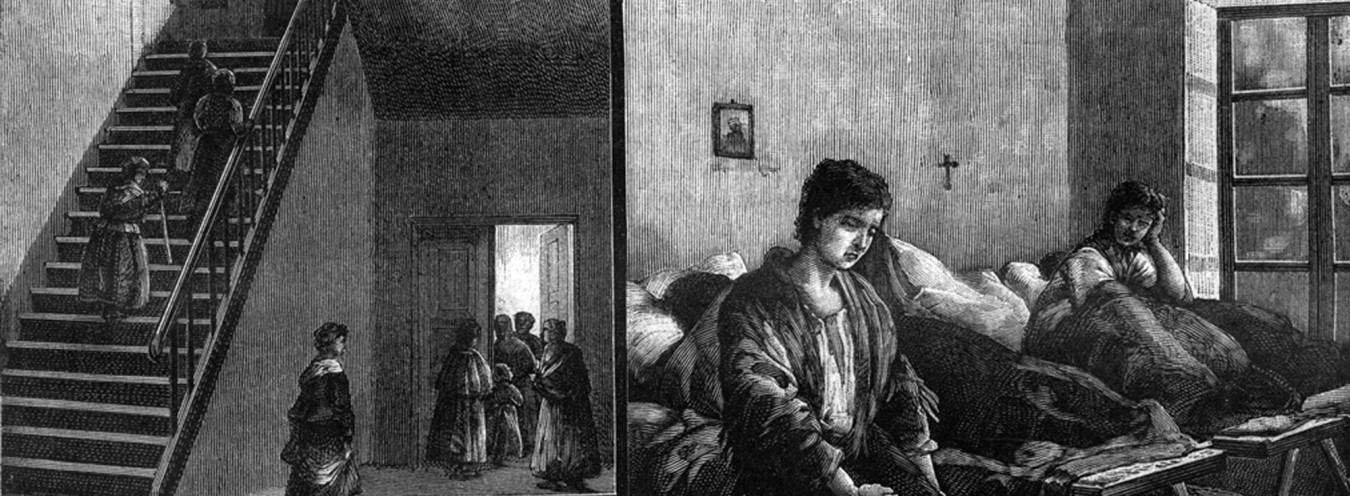
The Charitable Society
Members of the Charitable Society, in their frock-coats, had thanked [Stanisław Wokulski] for his offerings to their ever-hungry institutions. (78)
The Warsaw Charitable Society was one of the first charity organisations on post-partition Polish territories whose aim was to help the poorest. The Society was founded in 1814 and the founding initiative came from Countess Zofia Czartoryski Zamoyska. Thanks to her energetic efforts, the Society in 1819 took over premises vacated by the Carmelite nuns, who were moved to Kraków, and thus the headquarters of the charity became located on Krakowskie Przedmieście 62.
In Prus’s times, this was a sizeable institution, consisting of seven chapters, which dealt with (among others): supporting the poor on the streets of the city, providing the poor with medical care, caring for orphans, and distributing Rumford’s Soup. The board of the Society was elected for life. In the 1870s, its President was Prince Lubomirski and the VP – Count Ostrowski. Fulfilling these duties took personal involvement, which the aristocracy was committed to – not only during charity drives, as shown in The Doll.
The Society ran numerous facilities. Its funds came from donations, membership fees, or wills. The charity drives involved hugely popular raffles, balls, and concerts. The collected funds were then distributed among all areas of the Society’s activity: dosshouses, shelters, soup kitchens, reading rooms, work centres, savings, and loans offices, as well as among orphanages, crèches, and nurseries.
There are WCS members among The Doll’s characters. For instance, the Easter week charity drive is when Countess Karolowa and Izabela Łęcka collected donations in church during the several week long collection. The Countess also cared for one of the Society’s orphanages. Wokulski, in turn, tossed thousands of roubles to charity to earn a reputation as a generous philanthropist.
→ Charity; → Orphanages; → The Poor;
Bibliografia
- E. Mazur, Dobroczynność w Warszawie XIX wieku, Warszawa 1999.
- E. Leś, Zarys historii dobroczynności i filantropii w Polsce, Warszawa 2001.


